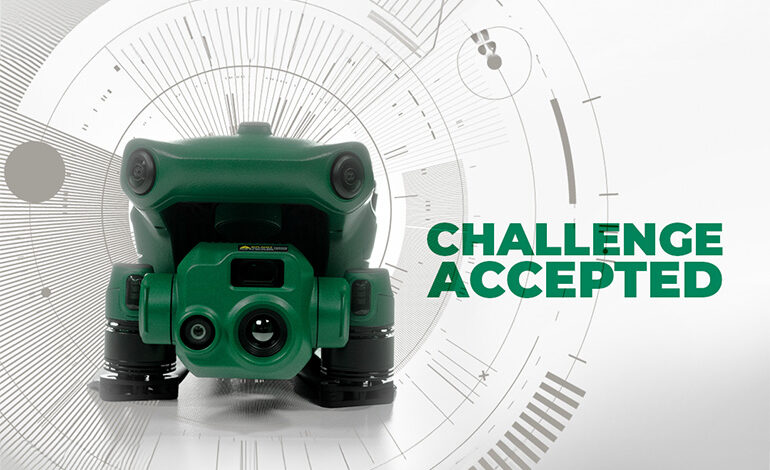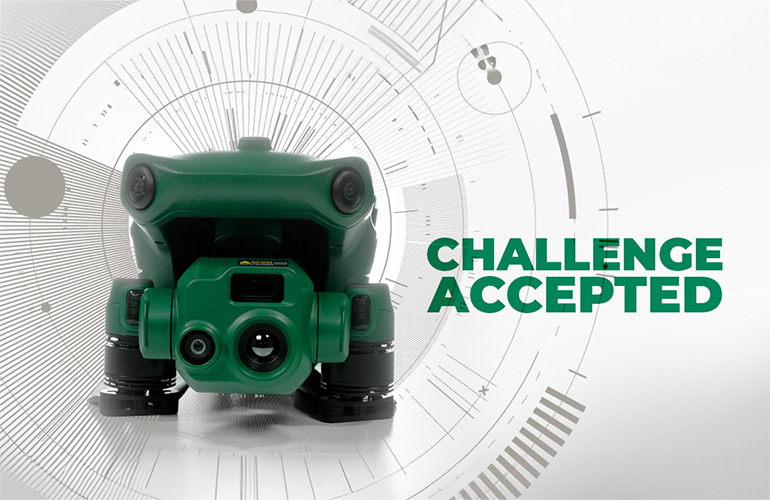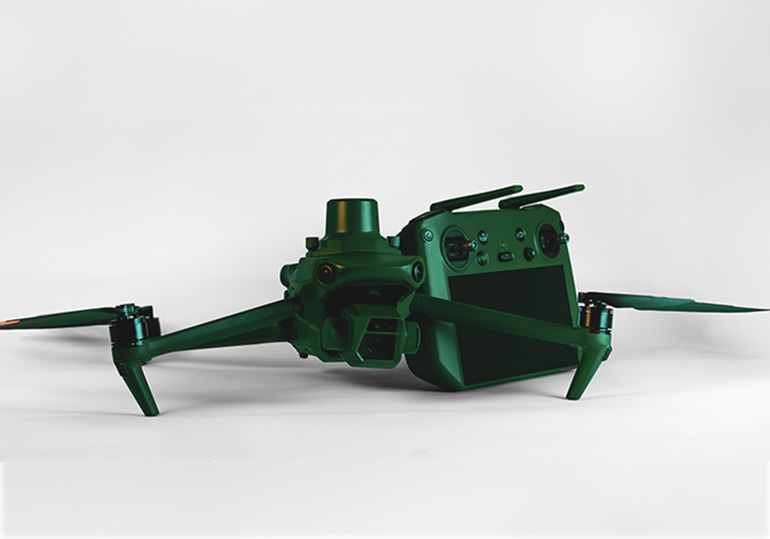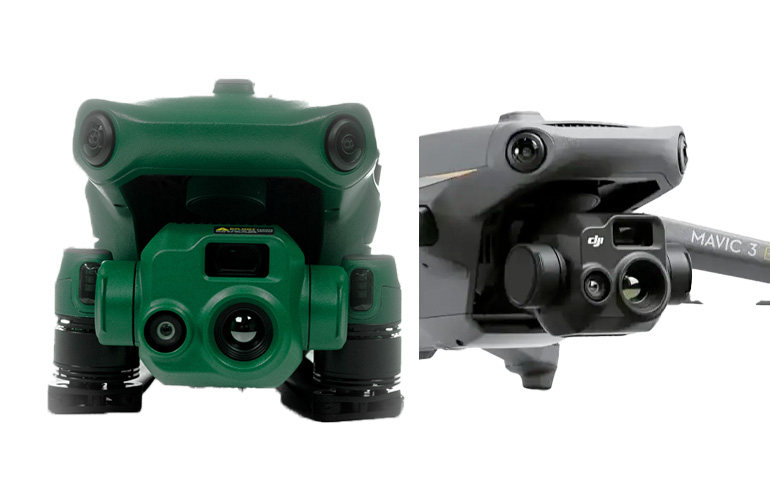Anzu Robotics launches U.S.-based clone of DJI Mavic 3

|
Listen to this article |

Anzu is offering inspection drones for the U.S. market. Source: Anzu Robotics
While drones from SZ DKI Technology Co. arguably dominate the U.S. market for enterprise drone applications, Anzu Robotics LLC is preparing to serve operators that might be affected by a ban on the Chinese-made systems.
The DJI Matrice and DJI Mavic products both offer a wide range of sensor and payload options suitable for use in applications such as inspection, mapping, surveying, and search and rescue operations. In the past year, DJI has increasingly come under criticism because it is a Chinese state-owned business, and many DJI drones are used to inspect and map critical U.S. infrastructure.
New legislation approved by the House Energy and Commerce Committee on March 20 is part of ongoing efforts by federal and state governments to limit the usage of DJI drones in the U.S. There was unanimous agreement among the committee members, as both Republicans and Democrats supported the proposed restrictions, citing national security concerns.
The bills, the Countering CCP Drones Act and the Foreign Adversary Communications Transparency Act (download PDFs), are now under consideration in the full U.S. House.
“Congress must use every tool at our disposal to stop communist China’s monopolistic control over the [U.S.] drone market,” stated Rep. Elise Stefanik (R-New York), the primary sponsor of the bills cleared by the committee.
However, many industry insiders are skeptical of the proposed DJI drone ban, due in part to the heavy lobbying of U.S.-based uncrewed aerial systems (UAS) manufacturers such as Skydio that would like to displace DJI.
Such companies hope to gain more market share within the U.S. market, as autonomous commercial drone applications grow in popularity. In August, 2023, Skydio ended all sales of its drones to consumers to focus 100% on the enterprise market.
 Learn from Agility Robotics, Amazon, Disney, Teradyne and many more.
Learn from Agility Robotics, Amazon, Disney, Teradyne and many more.
What’s the possible impact of a U.S. ban on DJI drones?
A lot of commercial drone operators, including fire departments and other public-safety groups, have said that the Countering CCP Drones bill would make it illegal for DJI drones to use U.S. communications infrastructure. This isn’t a complete ban, but it would make DJI drones useless in the U.S., especially for any business, state, or local government that might use a DJI drone, they said.
The potential approval of the legislation has sent the commercial drone industry into a panic, especially search-and-rescue teams that have heavily invested in DJI drones for their operations.
Enter Austin, Texas-based Anzu Robotics.
The company recently announced its entrance into the U.S. drone market and the launch of its new Raptor and Raptor T enterprise drones. CEO Randall Warnas is a veteran in the drone industry, having worked at Autel and FLiR Systems earlier in his career.
Warnas said he recognized the potential impact of a DJI ban in the U.S. and saw an opportunity to fill a real need in the industry.
Using his network, Warnas reached a licensing deal with DJI to manufacture the Raptor drones in Malaysia, using the core design and internal chipset of the DJI Mavic 3 platform. He could then import and sell the drones in the U.S. under the Anzu Robotics brand.
The Mavic 3 Enterprise series drones are not the latest generation of drones from DJI — that would be the Mavic 3 Pro — but the platform is proven and liked by many industry professionals today. It is one of the most successful generations of DJI drones to date, according to Warnas.

The Raptor drone and remote controller in their signature green color. | Credit: Anzu Robotics
Aloft software meets country of origin mandate
On the software side, Warnas signed a deal with U.S.-based Aloft AI (formerly Kittyhawk) to provide the flight control software on the controller. The Aloft software source effectively meets the requirements for U.S.-based ownership and control of flight data as defined in the Countering CCP Drones bill. By manufacturing drones in Malaysia, Anzu Robotics meets the requirements for country of origin.
“At Aloft, we recognize that our customers have diverse operational needs which demand that everything they fly must be securely and compliantly integrated into the airspace,” said Jon Hegranes, founder and CEO of Aloft. “Our collaboration with Anzu Robotics on the Raptor series extends our commitment to providing versatile, cutting-edge drone solutions that ensure top-tier security and compliance for all stakeholders.”
The Raptor does not have geofencing or other unofficial flight restrictions. All airspace information is authoritative and authentic, as Aloft is an UAS Service Supplier (USS) approved by the U.S. Federal Aviation Administration (FAA).

This comparison of the Anzu Robotics (left) and DJI Mavic 3 Enterprise (right) drones shows their similarities. | Credit: The Robot Report
Introducing the Anzu Robotics Raptor
Because Anzu’s drones are based on the DJI Mavic 3 Enterprise platform, they are equipped with a 4/3 CMOS sensor 20 MP wide-angle camera with a 56x hybrid zoom camera for 12MP images. Raptor T (for thermal) combines 1/2-inch 48MP and 12MP cameras with a 640×512 high-resolution LWIR thermal imaging payload, also with 56x hybrid zoom capabilities.
Similar to the Mavic 3, the Raptor boasts 45 minutes of flight time, a 9-mile range, and an optional RTK module accessory. Raptor will be backward-compatible with the DJI Intelligent Flight Battery from the DJI Mavic 3 drone.
Raptor is priced at $5,100, while Raptor T will sell for $7,600 in the U.S. This is more expensive than its DJI-badged Mavic cousin, but more competitive than U.S.-made counterparts such as Skydio and BRINC.
Anzu Robotics is targeting enterprise applications with the Raptor, as this is not a consumer platform. The company plans to focus in the coming year on building its its sales and partner distribution channels.
If the proposed legislation is passed and DJI is banned in the U.S., Anzu Robotics said it expects that existing DJI distribution partners would immediately move to it.
The Pilot Institute interviewed Randall Warnas about the company’s strategy and plans for the coming year.



